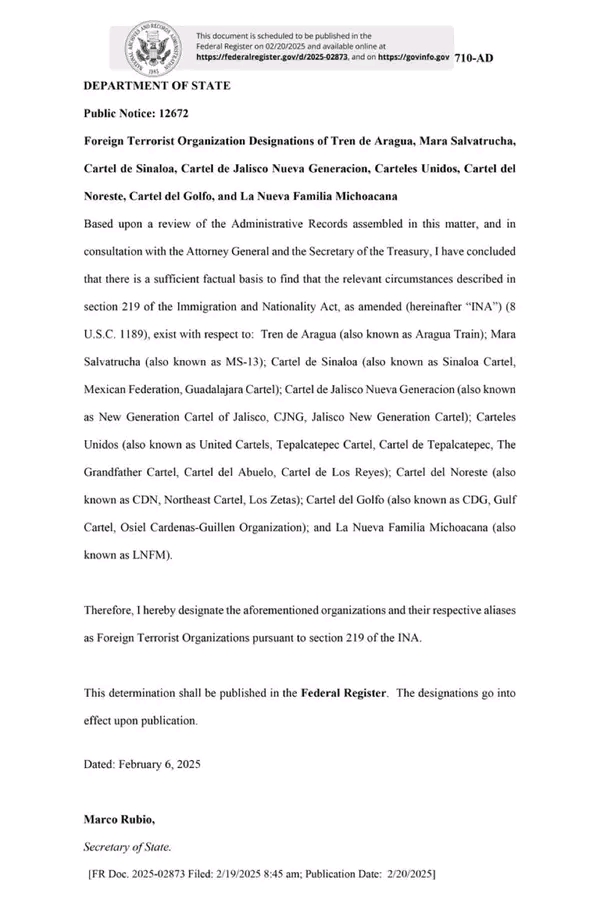Secretary of State Rubio Labels Major Cartels as Foreign Terrorist Organizations
In a significant move to address global security threats, Secretary of State Rubio has officially designated several notorious criminal organizations as Foreign Terrorist Organizations (FTOs). This decision underscores the growing recognition of these groups not merely as criminal enterprises but as entities that perpetuate violence, instability, and terror on an international scale. Among the groups named are Tren de Aragua, MS-13, the Sinaloa Cartel, and the Jalisco New Generation Cartel, alongside others such as the United Cartels, Gulf Cartel, Northeast Cartel, and Michoacán Family. This designation marks a pivotal step in the global fight against organized crime and terrorism.
The inclusion of these cartels on the FTO list reflects their involvement in activities that extend far beyond traditional drug trafficking. These organizations are now recognized for their roles in human trafficking, arms smuggling, and acts of violence that destabilize entire regions. By labeling them as terrorist entities, the U.S. government aims to dismantle their operations more effectively, leveraging stricter legal and financial measures to curb their influence. This move also signals a shift in how these groups are perceived, emphasizing their threat to national and international security.
Secretary of State Rubio’s decision highlights the interconnected nature of modern criminal and terrorist networks. Groups like MS-13 and the Sinaloa Cartel have long been synonymous with drug-related violence, but their reach now extends into political corruption, cybercrime, and even acts of terrorism. The designation as FTOs enables law enforcement agencies to collaborate more closely across borders, sharing intelligence and resources to combat these organizations more effectively. It also sends a clear message that the U.S. is committed to addressing the root causes of global instability.
The implications of this designation are far-reaching. By classifying these cartels as terrorist organizations, the U.S. government can impose stricter sanctions, freeze assets, and prosecute individuals associated with these groups under anti-terrorism laws. This approach not only disrupts their financial networks but also limits their ability to recruit and operate globally. Additionally, it raises awareness among international partners about the severity of the threat posed by these organizations, fostering greater cooperation in combating their activities.
Ultimately, Secretary Rubio’s decision represents a bold and necessary step in the ongoing battle against transnational crime and terrorism. By targeting the cartels’ operational capabilities and international influence, this designation aims to weaken their grip on vulnerable communities and restore stability to affected regions. While the road ahead remains challenging, this move underscores the importance of a unified global response to dismantle these dangerous networks and protect the safety and security of nations worldwide.
